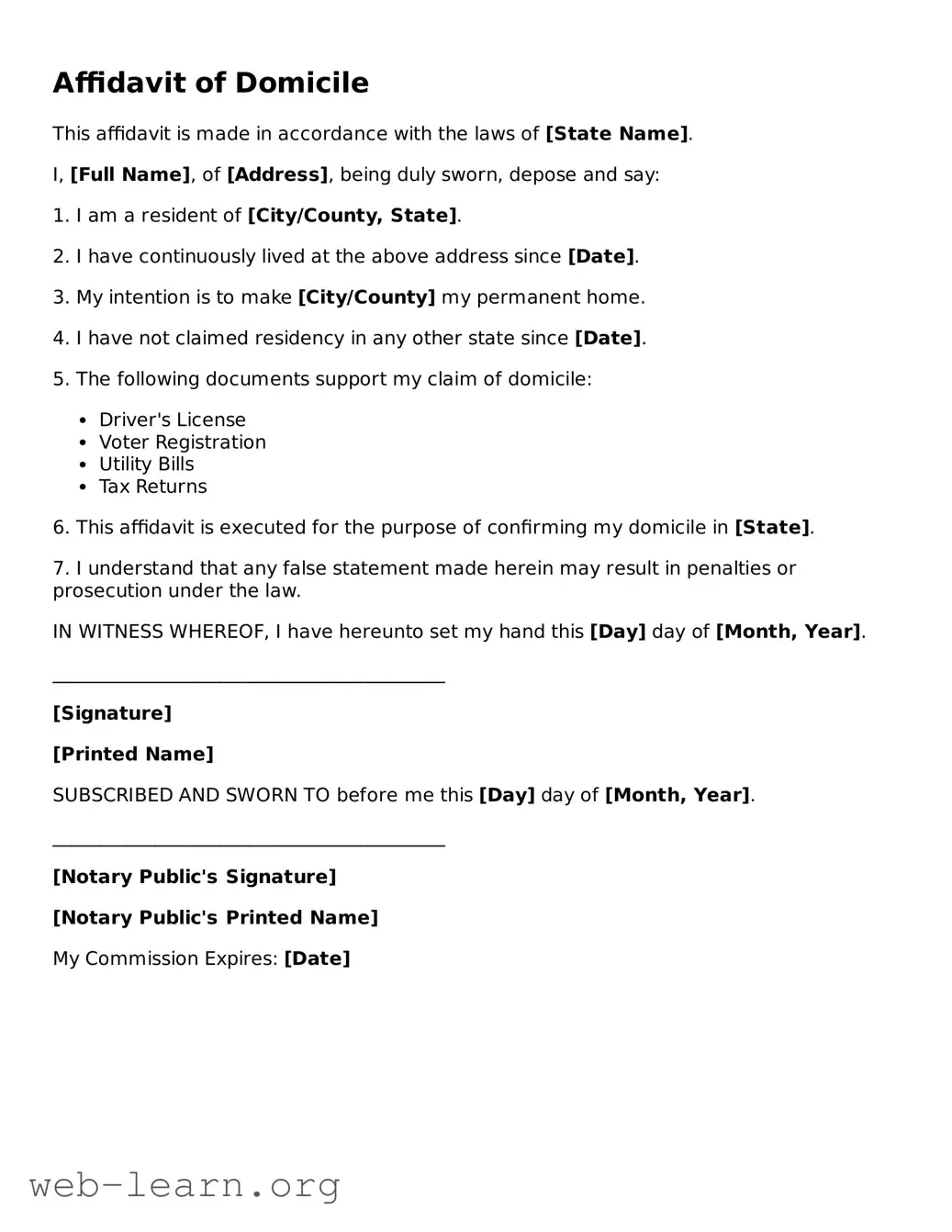Affidavit of Domicile
This affidavit is made in accordance with the laws of [State Name].
I, [Full Name], of [Address], being duly sworn, depose and say:
1. I am a resident of [City/County, State].
2. I have continuously lived at the above address since [Date].
3. My intention is to make [City/County] my permanent home.
4. I have not claimed residency in any other state since [Date].
5. The following documents support my claim of domicile:
- Driver's License
- Voter Registration
- Utility Bills
- Tax Returns
6. This affidavit is executed for the purpose of confirming my domicile in [State].
7. I understand that any false statement made herein may result in penalties or prosecution under the law.
IN WITNESS WHEREOF, I have hereunto set my hand this [Day] day of [Month, Year].
__________________________________________
[Signature]
[Printed Name]
SUBSCRIBED AND SWORN TO before me this [Day] day of [Month, Year].
__________________________________________
[Notary Public's Signature]
[Notary Public's Printed Name]
My Commission Expires: [Date]
